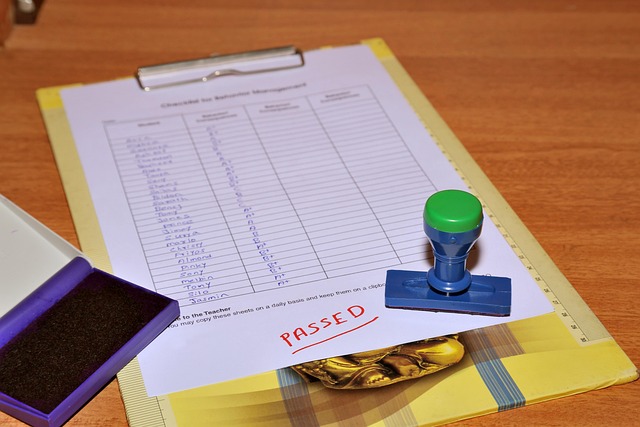Understanding and adhering to UK environmental regulations is crucial for international businesses. Translation services for UK Environmental Impact Assessments (EIA) play a vital role in ensuring compliance, accuracy, and cultural sensitivity. These services are essential for:
Overcoming language barriers
Correctly translating technical terms specific to environmental science, law, and policy
Maintaining document integrity and validity
Facilitating clear communication during international collaborations
* Avoiding legal consequences due to inaccurate translations
Choosing the right translation service requires prioritizing experience in EIA documentation, expertise in environmental terminology, rigorous quality assurance processes, and adherence to UK regulations. This ensures accurate, reliable translations that support successful navigation of complex UK EIAs.
In the UK, environmental impact assessments (EIAs) are crucial for navigating regulatory requirements and ensuring sustainable development. This article explores how translation services play a vital role in meeting these standards by facilitating cross-border project management. We delve into the intricacies of UK regulatory expectations, specifically focusing on EIAs, and highlight the potential pitfalls of language barriers. By examining key elements of a comprehensive EIA, case studies, and best practices, this guide equips professionals with insights on leveraging translation services for successful environmental projects.
- Understanding UK Regulatory Requirements for Environmental Impact Assessments
- The Role of Translation Services in Ensuring Compliance
- Key Elements of a UK EIA (Environmental Impact Assessment)
- Language Barriers and Their Impact on Regulatory Adherence
- Selecting Reputable Translation Providers for Environmental Projects
- Quality Assurance Processes in Translated EIA Documentation
- Legal Implications of Inaccurate or Insufficient Translations
- Best Practices for Integrating Translation into Environmental Project Management
- Case Studies: Successful Translations in UK Environmental Assessments
Understanding UK Regulatory Requirements for Environmental Impact Assessments

Understanding UK Regulatory Requirements for Environmental Impact Assessments is crucial for any organisation conducting business within the country. The UK has stringent regulations in place to ensure that development projects consider and mitigate their environmental impact, with a particular focus on protecting biodiversity, water resources, air quality, and landscape conservation. These requirements are set out in various pieces of legislation, including the Environmental Impact Assessment (EIA) Directive and the National Planning Policy Framework.
Translation services play a vital role in ensuring compliance for non-native speakers and international businesses. Accurate translation of assessment documents is essential to demonstrate understanding of UK regulations. Professional translation ensures that technical terms are correctly conveyed, minimising potential errors or misinterpretations that could lead to legal consequences. By leveraging translation services tailored for UK Environmental Impact Assessments, organisations can effectively navigate the regulatory landscape, fostering sustainable development practices.
The Role of Translation Services in Ensuring Compliance

In the context of UK Environmental Impact Assessments (EIA), translation services play a vital role in ensuring compliance with stringent regulatory requirements. Accurate and culturally sensitive translations are essential to convey complex environmental data and analyses accurately, as EIA documents often involve technical language and specific terminology related to ecological and geological sciences.
Translation services for UK EIA must adhere to high standards of quality and professionalism, reflecting the importance of precise communication in this critical domain. Specialized translators with expertise in environmental science, law, and policy are crucial to interpreting technical details correctly and ensuring that the translated document retains its original meaning and integrity. This meticulous approach is necessary to avoid misinterpretations or errors that could compromise the assessment’s validity and compliance with UK regulations.
Key Elements of a UK EIA (Environmental Impact Assessment)

The UK’s Environmental Impact Assessment (EIA) is a crucial process that evaluates the potential effects of proposed projects on the environment. This assessment is essential for ensuring compliance with the country’s strict environmental regulations, particularly under the European Union (EU) directives. A comprehensive EIA typically includes several key elements:
1. Identification and Description: This stage involves defining the project’s scope, its location, and the potential environmental impacts associated with it. It requires a detailed description of the project activities, including any construction, operation, or maintenance phases, along with an identification of the vulnerable ecological systems in the vicinity. Translation services for UK EIA play a vital role here by ensuring clear communication and understanding across diverse linguistic backgrounds, especially in projects involving international collaboration.
Language Barriers and Their Impact on Regulatory Adherence

Language barriers can significantly impact an organisation’s ability to adhere to UK regulatory requirements, particularly in fields that require detailed documentation like Environmental Impact Assessments (EIA). When dealing with assessments in multiple languages, ensuring accuracy and compliance is essential. This is where translation services play a pivotal role.
High-quality translation services for UK Environmental Impact Assessments are designed to bridge this gap. They employ professional translators who possess expertise not just in the language pairs involved but also in environmental regulations. This ensures that the translated documents maintain their integrity, accuracy, and compliance with UK standards, facilitating seamless regulatory adherence.
Selecting Reputable Translation Providers for Environmental Projects

When selecting translation providers for UK Environmental Impact Assessments, it’s paramount to choose reputable and experienced professionals. This is crucial, as environmental projects often involve complex terminology and require precise translations to adhere to regulatory standards. Look for providers with a proven track record in handling similar assessments, ideally within the UK market, to ensure they understand the nuances of local legislation and industry-specific jargon.
Reputable translation companies will have a team of specialist translators who are not just fluent in both languages but also possess expertise in environmental science or engineering. They should also employ rigorous quality assurance processes, including proofreading and editing, to guarantee error-free translations. Additionally, consider providers with access to relevant glossaries and databases that can maintain consistency across various project documents.
Quality Assurance Processes in Translated EIA Documentation

Ensuring accurate and reliable translation is paramount when it comes to Environmental Impact Assessments (EIA) in the UK, where precise documentation is legally mandated. Professional translation services play a pivotal role in this process by implementing rigorous Quality Assurance (QA) processes tailored to EIA documentation. These experts employ sophisticated tools and techniques to guarantee that translated texts not only convey the original meaning but also adhere strictly to UK regulatory standards.
The QA procedures involve multiple layers of review, including language specialists and industry experts, who scrutinize the translation for technical accuracy, environmental jargon, and compliance with specific UK terminology requirements. This meticulous approach ensures that any potential impact on the environment is correctly assessed and presented in the translated document, thus facilitating a seamless and regulatory-compliant process for clients engaging translation services for UK Environmental Impact Assessments.
Legal Implications of Inaccurate or Insufficient Translations

Inaccurate or insufficient translations in UK Environmental Impact Assessments (EIA) can have significant legal implications. The accuracy and clarity of translated documents are critical to ensuring compliance with regulatory requirements, as they directly impact decision-making processes related to development projects. Any discrepancies or errors may lead to legal challenges, delays, and potential financial penalties for the project developers.
The UK has stringent regulations regarding environmental assessments, and translations play a vital role in making these assessments accessible to stakeholders who may not speak the primary language. Professional translation services are essential to guarantee that EIA documents accurately convey the necessary information, ensuring transparency and fairness throughout the assessment process. These services must adhere to industry standards and best practices to mitigate legal risks associated with inaccurate or incomplete translations.
Best Practices for Integrating Translation into Environmental Project Management

Integrating translation into environmental project management is a best practice essential for ensuring UK regulatory compliance, particularly for Environmental Impact Assessments (EIAs). Accurate and culturally sensitive translations are vital to convey complex ecological data and stakeholder concerns effectively. Professional translation services play a crucial role in this process by providing precise interpretations of technical documents, allowing for comprehensive assessment of potential environmental impacts across diverse regions and languages.
When managing UK EIAs, leveraging translation services can help overcome language barriers and ensure that all relevant parties, including local communities, have access to essential information. This inclusive approach is not only a regulatory requirement but also fosters transparency and public engagement, enhancing the overall quality of the assessment process. Translation specialists should be adept in environmental terminology and familiar with UK-specific regulations to deliver accurate translations tailored to the context.
Case Studies: Successful Translations in UK Environmental Assessments

In the realm of UK environmental assessments, translation services play a pivotal role in ensuring compliance with stringent regulatory requirements. Case studies illustrate successful translations that have navigated complex ecological landscapes, showcasing the expertise and accuracy of these services. By accurately conveying technical jargon and nuanced terminology specific to environmental impact assessments (EIA), translation professionals facilitate comprehensive documentation that resonates with both domestic and international audiences.
These translations are not mere word-for-word substitutions; they demand a deep understanding of ecological concepts and regulatory frameworks. They empower organizations to submit robust EIA reports, adhering to the UK’s rigorous standards. The successful integration of translation services into environmental assessments demonstrates their indispensable role in facilitating responsible development while maintaining regulatory integrity.
In ensuring compliance with UK regulatory requirements for Environmental Impact Assessments (EIAs), translation services play a pivotal role. By accurately translating documents into languages relevant to the project and its stakeholders, these services address language barriers that could impede adherence to regulations. Reputable providers implement rigorous quality assurance processes, guaranteeing precise and culturally sensitive translations. Integrating professional translation into environmental project management not only facilitates regulatory compliance but also enhances stakeholder engagement and the overall success of assessment processes.
